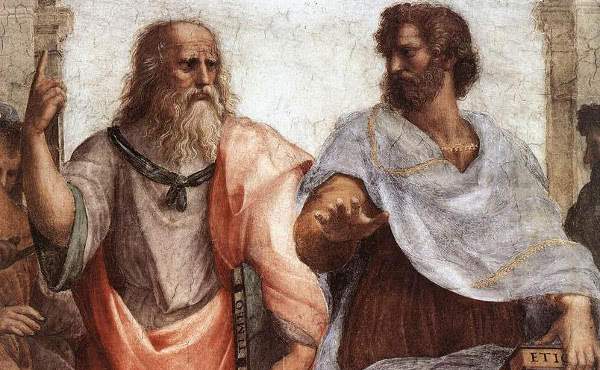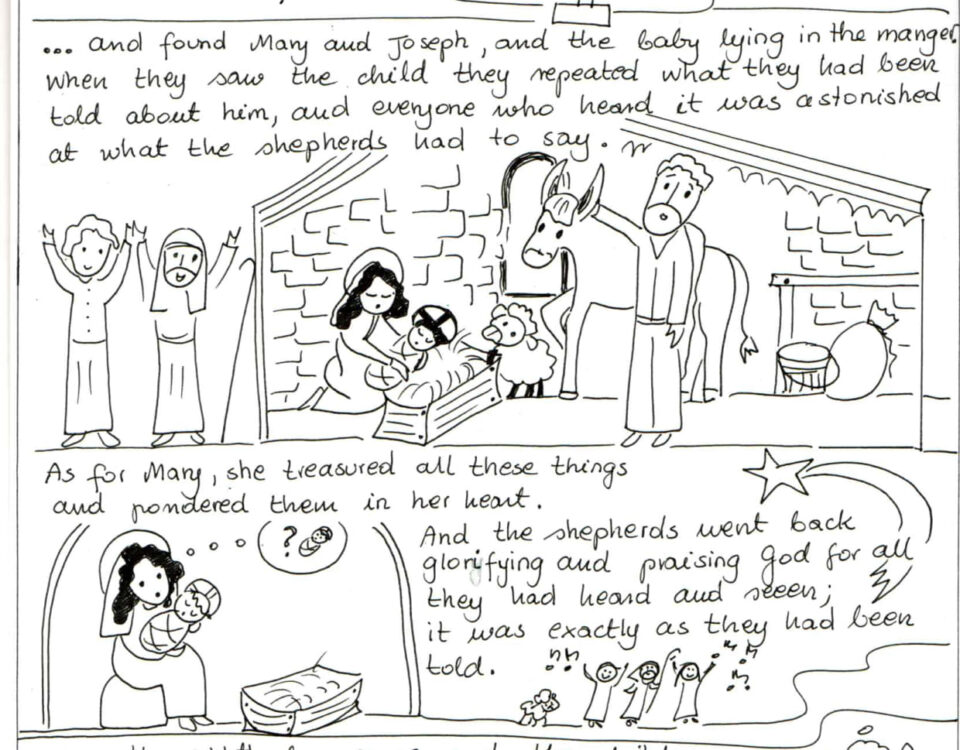Divine Retreat Centre UK – Official Website
“On Loving God”
January 27, 2023How do you react to the fact that the Bible calls you a sinner?
January 27, 2023The overarching topic of the entire Bible is salvation history, which includes events like Jesus’ resurrection and other events caused directly by God. It is a chronicle of salvation, from one paradise to another, and it is the story of the place we will ultimately go after we die.
The Book of Exodus illustrates how easy it is for people to slip into sin, and as a result, at the end of the first chapter, the Israelites are in Egyptian slavery. The second chapter discusses God’s desire to set the Israelites free and how God sends Moses to be their liberator.
Exodus 2:1-2: “Now a man from the house of Levi went and married a Levite woman. The woman conceived and bore a son; and when she saw that he was a fine baby, she hid him for three months.” It is interesting that Moses’ mother and father are not named here. The fact that only their tribe is mentioned signifies that this is more important to know at this point in the account. Their names are given in Exodus 6:20 and Numbers 26:59 as “Jochebed” (which means “the LORD is glory”) for his mother and “Amram” (which probably means “exalted people”) for his father.
The decision to hide the child was because just at the time of Moses’ birth there was a declaration that every male child in the country should be thrown into the river Nile. Later, Pharaoh ordered the midwives to kill all male children of the Israelites. Pharaoh tactically wanted to control the birth rate of the Israelites. Because the threat was all too real to the mother, she hid him for three months.
Why did Jochebed act in such a manner? We shall discover the answer in Hebrews 11:23: “By faith Moses, when he was born, was hidden for three months by his parents, because they saw he was a beautiful child; and they were not afraid of the king’s edict.” The above verse implies that they believed that the God of the Hebrews would take care of them (Hebrews 11 is a chapter about faith). They hid the child because of faith. It could also mean that the mother saw in him something special beyond his physical appearance. This should serve as a lesson to us about having faith.
There is a link of God’s providence in the life of Moses. There can be no doubt that Moses was a man specially prepared by God. The hand of God is seen in even the smallest detail. God allowed Moses to be thrown into the Nile and then delivered him to show the chosen people that he was their liberator.
Why did Pharaoh’s daughter take Moses? Acts 7:22 states: “So Moses was instructed in all the wisdom of the Egyptians and was powerful in his words and deeds.” While Pharaoh’s daughter made her own choice to keep the baby, the angels ensured that circumstances were favorable to encourage her to cooperate unwittingly with the divine plan. Moses benefited greatly from his Egyptian education. God had his own plan that involved striking down the Egyptians in judgment. God works in our lives in mysterious ways. Pharaoh’s daughter saved the life of Moses.
Egypt had a rich history and culture dating back thousands of years. This will be the story of each one of us, if we have faith. God sometimes gives early earnests of his gifts, and manifests himself betimes in those for whom and by whom he designs to do great things.
Moses’ ark was the instrument in saving his life, and Moses became Israel’s deliverer. Apparently, Moses’ mother knew that the daughter of Pharaoh came down to bathe at the Nile. The daughter of Pharaoh was not alone – she came with her maidens. These were her young female attendants. While Pharaoh’s daughter was bathing, they were walking alongside the Nile, probably along a familiar path that they took almost daily. When Pharaoh’s daughter was in the water, she saw the basket in the reeds nearby. She then sent her maid and she brought the basket to her.
When Moses’ mother came to her, Pharaoh’s daughter said to her, “Take this child away and nurse him for me and I will give you your wages.” So the woman took the child and nursed him. Thus, in a wonderfully miraculous way, and against all odds, the LORD reunited Moses and his mother.
Hebrews 11:24-25 By faith Moses, when he was grown up, refused to be called a son of Pharaoh’s daughter, choosing rather to share ill-treatment with the people of God than to enjoy the fleeting pleasures of sin.
“Refused” is a word that indicates a specific choice. Moses came to the point of decision where he removed himself from Pharaoh’s family. Moses decided what he wasn’t, but also what he was. He was Hebrew, so he chose to “be mistreated with the people of God.” Though prestige and influence were open to Moses, he gave it all up. He could have lived comfortably among the Egyptian aristocracy, but instead, he denied himself and chose the “reproach of Christ.” When Moses “had grown up,” God inspired him to leave the court of Pharaoh and the princess his daughter, who had raised him as her own child, and go “out to his people.” Moses, when he was grown up, refused to be called the son of Pharaoh’s daughter, choosing rather to share ill-treatment with the people of God than to enjoy the fleeting pleasures of sin. He considered abuse suffered for Christ greater wealth than the treasures of Egypt . . . by faith he left Egypt, not being afraid of the anger of the king,” who henceforth sought his death. For Moses to save them, it was necessary that he suffer their opposition, which was so pronounced that he was forced to take flight. And so persecution came from those he was to save, and by this means God showed him to be like their Savior, an image of Jesus Christ.
Exodus 2:11-12: “One day, after Moses had grown up, he went out to his people and saw their forced labor. He saw an Egyptian beating a Hebrew, one of his kinsfolk. He looked this way and that, and seeing no one, he killed the Egyptian and hid him in the sand.” Moses clearly knew that he was Jewish. As an adult, Moses defends a fellow Jew by killing an Egyptian aggressor. He identified with the man who was being beaten as “one of his people.” Moses is shocked to find that his attempt to hide the act failed, and he is forced to flee Egypt. Jesus is prefigured in the person of Moses. Moses was not fighting with a person but with evil. Killing an Egyptian signifies killing evil.
Acts 7:35: “It was this Moses whom they rejected when they said, ‘Who made you a ruler and a judge?’ and whom God now sent as both ruler and liberator through the angel who appeared to him in the bush.”
Moses, who was rejected by his people, returned to Egypt as a deliverer when he was also 80 years old. He performed wonders and signs to show God’s power in Egypt, at the Red Sea, and in the wilderness. In spite of Israel’s rejection of Moses, God continued to love them. They are His elect. They are still His children, even while enslaved in the land of Egypt. Thus, He called Moses to return and redeem Israel from slavery.
Exodus 2:23-25: “After a long time, the king of Egypt died. The Israelites groaned under their slavery and cried out. Out of the slavery, their cry for help rose up to God. God heard their groaning and remembered his covenant with Abraham, Isaac, and Jacob. God looked upon the Israelites and took notice of them.”
They prayed, and He heard, reminding us that God always hears our prayers.
God had planned it centuries previously and had also promised their deliverance. This prophesied deliverance was certain to come to pass.
More generally, God has promised each of Abraham, Isaac, and Jacob that He will bless all the nations through their offspring (Gen 12:3, 26:4, 28:14). Given these promises, God had to remember, He could not forget His people in Egypt.
Jesus Christ (Col. 2:9) who, in saving us from sin saves us from every evil? To complete the prefigurement, Moses was both “as God to Pharaoh” and at the same time the mediator. Thus, Jesus, who is our God, is at the same time our mediator, our all-powerful intercessor, to whom God refuses nothing, and “there is no other name under heaven given among men by which we must be saved.”
Let us place ourselves in his life-giving hands. He asks for nothing more than that we give ourselves to him. Then, he will save us, for “salvation is from the Lord.”



